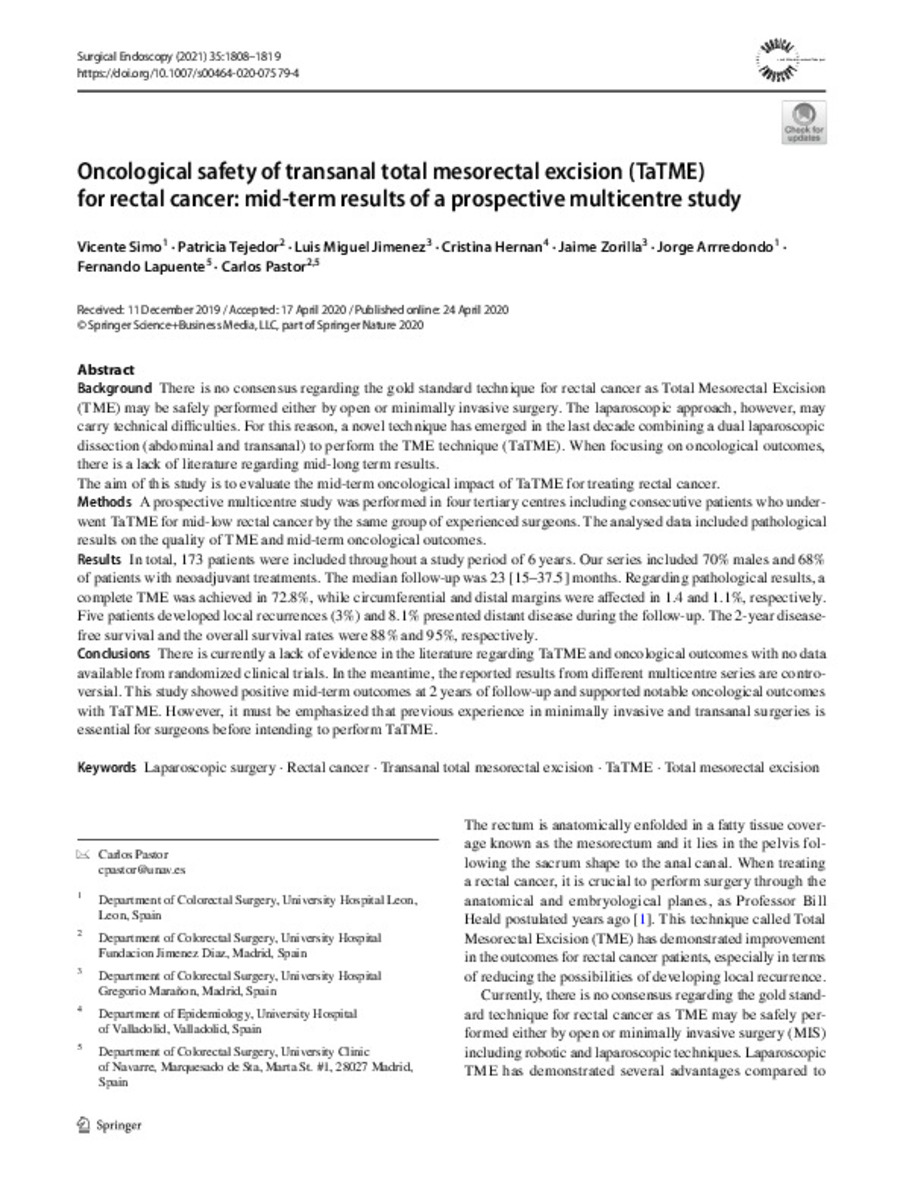Oncological safety of transanal total mesorectal excision (TaTME) for rectal cancer: mid-term results of a prospective multicentre study
Keywords:
Laparoscopic surgery
Rectal cancer
Transanal total mesorectal excision
TaTME
Total mesorectal excision
Editorial note:
© Springer Science+Business Media, LLC, part of Springer Nature 2020
Citation:
Arredondo, J. (Jorge); Simó, V. (Vicente); Tejedor, P. (Patricia); et al. "Oncological safety of transanal total mesorectal excision (TaTME) for rectal cancer: mid-term results of a prospective multicentre study". Surgical Endoscopy. 35, 2021, 1808 - 1819
Statistics and impact
0 citas en

0 citas en

Items in Dadun are protected by copyright, with all rights reserved, unless otherwise indicated.








